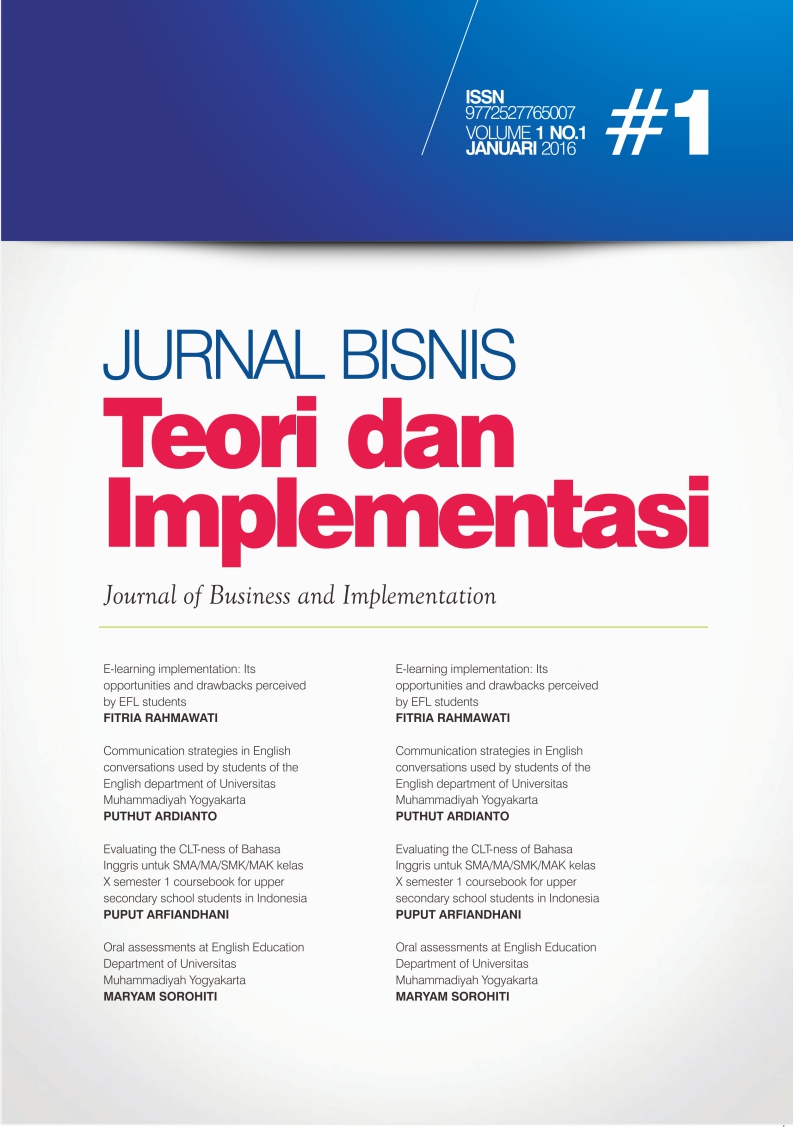Effects of Experience Quality and Perceived Value on Tourist Satisfaction And Behavioral Intention In Prambanan Temple
DOI:
https://doi.org/10.18196/jbti.v13i2.17168Keywords:
Experience quality, perceived value, satisfaction, behavioral intentionAbstract
This purpose of this study is to analyze the effect of experience quality, perceived value and satisfaction on behavioral intentions in Yogyakarta tourism. Settings used in this study is prambanan temple which is located on the border of Yogyakarta and Central Java. Prambanan temple managed by PT. Taman Wisata Candi Borobudur, Prambanan and Ratu Boko (Persero). This research is a kind of quantitative research conducted by the survey. Data collection techniques used in this study by questionnaire. Sample of this study was prambanan temple tourist and fulfill the criteria by the researchers. The number of respondents used in this study were 179 respondents. Sampling technique used is non probability sampling with purposive sampling method. The data analysis in this study were descriptive statistics and SEM (structural Equation modeling). The results of this study showed overall the hypotheses proposed in this study has a significant and positive influence. For indirect effects, perceived value in this study does not mediate the relationship between experience quality and satisfaction.References
Brady, M. K., & Cronin Jr, J. J. (2001). Some new thoughts on conceptualizing perceived service quality: a hierarchical approach. Journal of marketing, 65(3), 34-49.
Chan, J. K. L., & Baum, T. (2007). Ecotourists’ perception of ecotourism experience in lower Kinabatangan, Sabah, Malaysia. Journal of Sustainable Tourism, 15(5), 574–590.
Chen, C. F., & Chen, F. S. (2010). Experience quality, perceived value, satisfaction and behavioral intentions for heritage tourists. Tourism management, 31(1), 29-35.
Cole ST, Scott D. 2004. Examining the mediating role of experience quality in a model of tourist experience. Journal of Travel & Tourism Marketing 16(1): 79-90
Crompton, J. L., & Love, L. L. (1995). The predictive validity of alternative approaches to evaluating quality of a festival. Journal of travel research, 34(1), 11-24.
De Rojas, M. D. C., & De Carmen Camarero, M. (2006). Experience and satisfaction of visitors to museums and cultural exhibitions. International Review on Public and Non Profit Marketing, 3(1), 49.
Grönroos, C. (1984). A service quality model and its marketing implications. European Journal of marketing, 18(4), 36-44.
Lovelock, C. H. (2000). Service Marketing (4th ed.). NJ: Prentice Hall International
Jin, N. P., Lee, S., & Lee, H. (2015). The effect of experience quality on perceived value, satisfaction, image and behavioral intention of water park patrons: new versus repeat visitors. International Journal of Tourism Research, 17(1), 82-95.
Johnston R., Clark G., Shulver M., (2012), Service operations management improving service delivery Fourth Edition. Pearson Education Limited.
Ko YJ and Pastore DL. 2005. A hierarchical model of service quality for the recreational sport industry. Sport Marketing Quarterly 14(2): 84–97.
Kotler dan Keller, (2016), Marketing Management 15e, Global Edition. Pearson Prentice Hall.
Oliver, R. L. (1999). Whence consumer loyalty? Journal of Marketing, 63, 33–44.
Otto, J. E., & Ritchie, J. R. B. (1996). The service experience in tourism. Tourism Management, 17(3), 165–174.
Parasuraman, A., Zeithaml, V. A., & Berry, L. L. (1985). A conceptual model of service quality and its implications for future research. the Journal of Marketing, 41-50.
Parasuraman, A., Zeithaml, V. A., & Berry, L. L. (1988). Servqual: A multiple-item scale for measuring consumer perc. Journal of retailing, 64(1), 12.
Rust, R. T., & Oliver, R. L. (1994). Service quality: insights and managerial implication from the frontier. In T. RolandRust, & Richard L. Oliver (Eds.), Service quality: New directions in theory and practice (pp. 1–19). Thousand Oaks, CA: Sage.
Zeithaml, V. A. (1988). Consumer perceptions of price, quality and value: a means-end model and synthesis of evidence. Journal of Marketing, 52, 2–22.
Downloads
Published
Issue
Section
License
JBTI : Jurnal Bisnis : Teori dan Implementasi is licensed under  Creative Commons Attribution Attribution-NonCommercial-NoDerivatives 4.0 International License.
Creative Commons Attribution Attribution-NonCommercial-NoDerivatives 4.0 International License.
Authors who publish with this journal agree to the following terms:
- Authors retain copyright and grant the journal right of first publication with the work simultaneously licensed under a Creative Commons Attribution Attribution-NonCommercial-NoDerivatives 4.0 International License that allows others to share the work with an acknowledgment of the work's authorship and initial publication in this journal.
- Authors are able to enter into separate, additional contractual arrangements for the non-exclusive distribution of the journal's published version of the work (e.g., post it to an institutional repository or publish it in a book), with an acknowledgment of its initial publication in this journal.
- Authors are permitted and encouraged to post their work online (e.g., in institutional repositories or on their website) before and during the submission process, as it can lead to productive exchanges and earlier and greater citation of published work (See The Effect of Open Access).



